Introduction
Fat loss is one of the most common health goals for people around the world. With so many diets, fads, and fitness routines being promoted daily, it’s easy to get confused. However, the truth is much simpler: achieving fat loss sustainably and effectively begins with a balanced diet. This guide will help you understand everything you need to know about constructing and following a balanced diet specifically designed to help you lose fat, retain lean muscle, and stay energized.
What is Fat loss

Fat loss differs from weight loss. While weight loss may include muscle and water loss, fat loss specifically targets the reduction of body fat. To achieve this, the primary principle is maintaining a caloric deficit — consuming fewer calories than your body needs to maintain its current weight.
But this doesn’t mean starving yourself. The goal is to consume nutrient-rich, whole foods in the right proportions to support your body while it burns fat.
Why a Balanced Diet Matters for Fat Loss
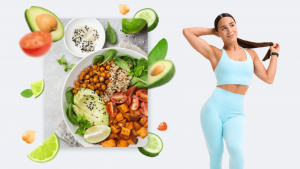
A balanced diet ensures that your body receives all the essential nutrients without excess calories. It improves metabolic efficiency, supports hormonal balance, aids muscle retention, and boosts overall energy. Here’s what makes a diet ‘balanced’:
- Proper distribution of macronutrients: Proteins, carbohydrates, and fats
- Adequate micronutrients: Vitamins and minerals
- Inclusion of fiber and hydration
By optimizing your intake across all these components, you create the ideal environment for sustainable fat loss.
Macronutrients and Their Role in Fat Loss
1. Protein
- Function: Builds and repairs muscle, increases satiety, supports metabolism
- Sources: Eggs, chicken, turkey, tofu, legumes, whey protein
- Ideal Intake: 1.2 to 2.0 grams per kg of body weight
2. Carbohydrates
- Function: Primary source of energy, supports brain function and physical activity
- Sources: Whole grains, vegetables, fruits, legumes
- Types: Focus on complex carbs (brown rice, oats, sweet potatoes) over simple sugars
3. Fats
- Function: Hormonal health, cell function, long-term energy
- Sources: Avocados, olive oil, nuts, seeds, fatty fish
- Important Note: Avoid trans fats and limit saturated fats
4. Fiber
- Function: Promotes digestion, reduces appetite, controls blood sugar
- Sources: Vegetables, fruits, whole grains, legumes
5. Water
- Function: Essential for metabolism, nutrient transport, satiety
- Recommended Intake: 2.5–3.5 liters/day depending on activity and climate
Micronutrients Crucial for Fat Loss
| Nutrient | Role in Fat Loss | Sources |
| Iron | Supports energy levels | Red meat, spinach, lentils |
| Magnesium | Muscle function, sleep quality | Nuts, seeds, dark chocolate |
| Zinc | Hormone production, metabolism | Pumpkin seeds, chickpeas, beef |
| Vitamin D | Fat metabolism, bone health | Sunlight, egg yolks, fatty fish |
| Vitamin B12 | Energy metabolism | Eggs, dairy, meat, fortified cereals |
| Potassium | Muscle recovery, fluid balance | Bananas, potatoes, spinach |
Natural fat loss supplements
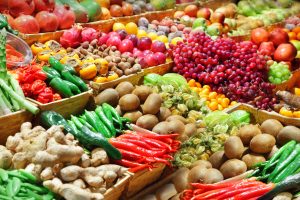
| Supplement | Key Benefit | How It Works |
| Green Tea Extract | Boosts metabolism and fat oxidation | Contains catechins and caffeine that enhance thermogenesis |
| Garcinia Cambogia | May reduce appetite and block fat production | Contains hydroxycitric acid (HCA), which may inhibit fat-storing enzymes |
| Glucomannan | Promotes fullness and reduces calorie intake | A natural fiber that expands in the stomach |
| Cayenne Pepper | Increases calorie burning and reduces hunger | Contains capsaicin, which may boost metabolism |
| CLA (Conjugated Linoleic Acid) | May help reduce body fat and preserve lean muscle mass | A fatty acid that may influence fat metabolism |
| Probiotics | Supports gut health and may aid weight regulation | Balances gut bacteria linked to weight control |
| Apple Cider Vinegar | May reduce fat storage and improve insulin sensitivity | Acetic acid may influence metabolism and appetite |
| Berberine | Supports blood sugar control and fat metabolism | A plant compound that activates AMPK, a key metabolic regulator |
| Fenugreek | Helps control appetite and reduce food intake | May influence satiety hormones and blood sugar levels |
| Ginger | May reduce body weight and waist circumference | Has anti-inflammatory and appetite-suppressing properties |
| Mitolyn | Mitolyn is a cutting-edge supplement | The supplement’s formulation targets various aspects of cellular function and energy production |
How Mitolyn Supports Fat Loss
Mitolyn is a dietary supplement often marketed for its support in cellular energy production, metabolic function, and fat loss. While direct fat-burning claims should always be approached with caution, here’s an elaborated explanation on how Mitolyn may support fat loss, based on its typical ingredients and intended functions:
1. Boosts Mitochondrial Efficiency
-
Mitochondria are central to energy production.
-
Efficient mitochondria = better fat oxidation = more calories burned from fat.
2. Enhances Fatty Acid Transport
-
L-Carnitine helps shuttle fat into mitochondria to be burned as fuel.
-
This increases the use of stored fat, especially during cardio or fasting.
3. Reduces Oxidative Stress
-
Antioxidants like CoQ10 and ALA reduce cellular stress and improve metabolic function.
-
Lower inflammation is linked with improved fat-burning and better recovery.
4. Improves Metabolic Rate
-
By supporting mitochondrial health, Mitolyn may naturally elevate your resting metabolic rate (RMR).
-
A higher RMR means you burn more calories even while at rest.
5. Supports Exercise Performance
-
More energy production means improved endurance and workout capacity.
-
Enhanced performance = more intense workouts = more calories burned.
Caloric Needs and Deficit
To lose fat, you need to be in a caloric deficit. Here’s how to calculate your needs:
- Calculate BMR (Basal Metabolic Rate)
- Use the Mifflin-St Jeor Equation:
- Men: BMR = 10weight (kg) + 6.25height (cm) – 5*age (y) + 5
- Women: BMR = 10weight (kg) + 6.25height (cm) – 5*age (y) – 161
- Use the Mifflin-St Jeor Equation:
- Add Activity Level
- Sedentary (BMR x 1.2), Lightly active (x1.375), Moderately active (x1.55), Very active (x1.725)
- Create a Deficit
- Aim for 500–700 calorie deficit/day for 0.5–1 kg/week fat loss
Best Workout for Fat Loss

The best workouts for fat loss combine cardio, strength training, and high-intensity intervals to maximize calorie burn and metabolic boost.
Cardio
Cardio refers to any rhythmic physical activity that raises your heart rate and keeps it elevated for a sustained period. It primarily targets the heart and lungs, improving cardiovascular endurance.
Like as:-Running or jogging , Cycling & Swimming
Strength Training
Strength training involves exercises that work your muscles against a form of resistance to increase strength, endurance, and muscle mass.
Like as:-Weightlifting (barbells, dumbbells, kettlebells), Resistance band workouts & Machines at the gym
High-Intensity Interval Training (HIIT)
HIIT involves short bursts of intense exercise followed by brief recovery periods. It’s designed to maximize calorie burn and improve cardiovascular fitness in less time.
Like as:-Sprint for 30 seconds, 45 seconds jumping jacks & Tabata
Intermittent Fasting and Balanced Diet
Intermittent fasting (e.g., 16:8) can help some people naturally eat fewer calories. It works best when combined with a balanced intake of food during the eating window. It’s not a must for fat loss but can be a helpful tool.
Psychological Aspects of Fat Loss
- Avoid perfectionism: Progress over perfection
- Practice mindful eating: Eat slowly and avoid distractions
- Don’t fear food: Develop a healthy relationship with all foods
- Use the 80/20 rule: 80% whole foods, 20% flexibility
Conclusion
A balanced diet is not just a short-term fix but a lifelong solution for effective and sustainable fat loss. It provides your body with the nutrients it needs to function optimally while helping you maintain a healthy caloric deficit. By incorporating whole foods, proper portions of macronutrients, sufficient hydration, and mindful eating habits, you set yourself up for long-term success.
Remember, fat loss is not about being perfect; it’s about being consistent. Avoid crash diets and overly restrictive approaches—they may offer quick results, but they’re rarely sustainable. Instead, embrace the principles of balance, variety, and moderation.
Combining this dietary approach with regular physical activity, proper sleep, and a supportive mindset will accelerate your results and help you develop a healthy relationship with food. The journey may take time, but it will be worth it. Trust the process, listen to your body, and celebrate every small victory along the way.
Always consult with a healthcare provider or a certified nutritionist before making significant changes to your diet, especially if you have pre-existing health conditions.
Frequently Asked Questions (FAQs)
1. Can I lose fat without cutting carbs?
Yes, you can. Just ensure you’re in a calorie deficit and choose whole, complex carbs.
2. How much protein should I consume?
Around 1.2–2.0g per kg of body weight per day.
3. Is keto better than a balanced diet?
Keto may work for some, but balanced diets are more sustainable long term.
4. Do cheat meals ruin progress?
No, occasional indulgences are fine within your weekly calorie budget.
5. Should I exercise during fat loss?
Yes, especially strength training to preserve muscle mass.
6. Can I eat late at night?
Yes, if your total daily intake is managed.
7. Is intermittent fasting necessary?
Not required but can be helpful for controlling hunger.
8. What’s the best breakfast for fat loss?
High-protein and fiber-rich meals like eggs and oats.
9. How soon can I see results?
Visible fat loss typically starts in 4–6 weeks with consistency.
10. Should I take supplements?
Only if needed—e.g., protein powder, vitamin D, or B12.
11. Can I eat fruit on a fat loss diet?
Yes. Fruits are rich in fiber, vitamins, and water.
12. How many meals should I eat per day?
3–5 meals depending on your preference and lifestyle.
13. How important is water for fat loss?
Very. It supports metabolism and reduces hunger cues.
14. Are detox drinks necessary?
No. Your liver and kidneys detox your body naturally.
15. What’s the biggest fat loss mistake?
Trying extreme diets that are unsustainable.




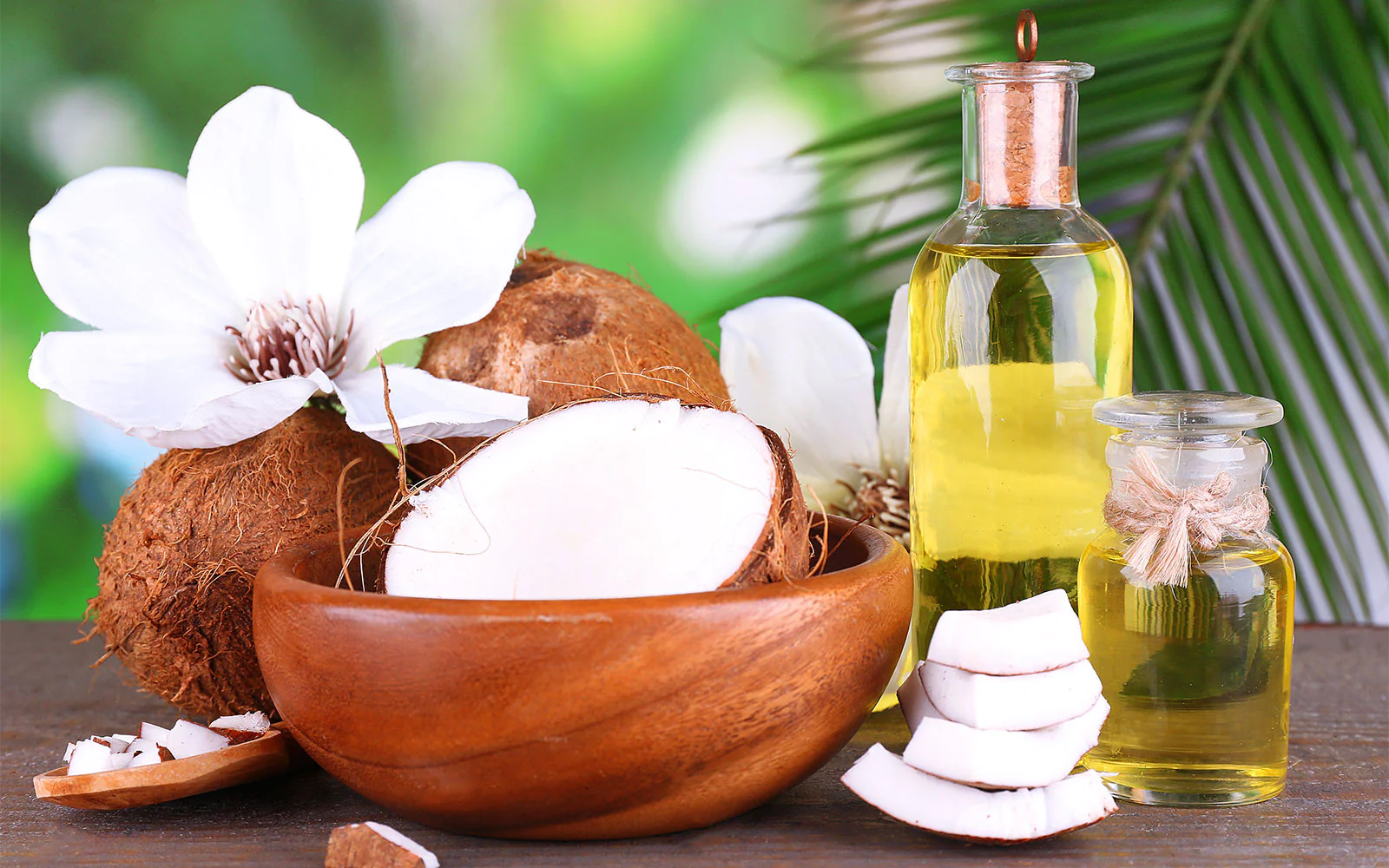







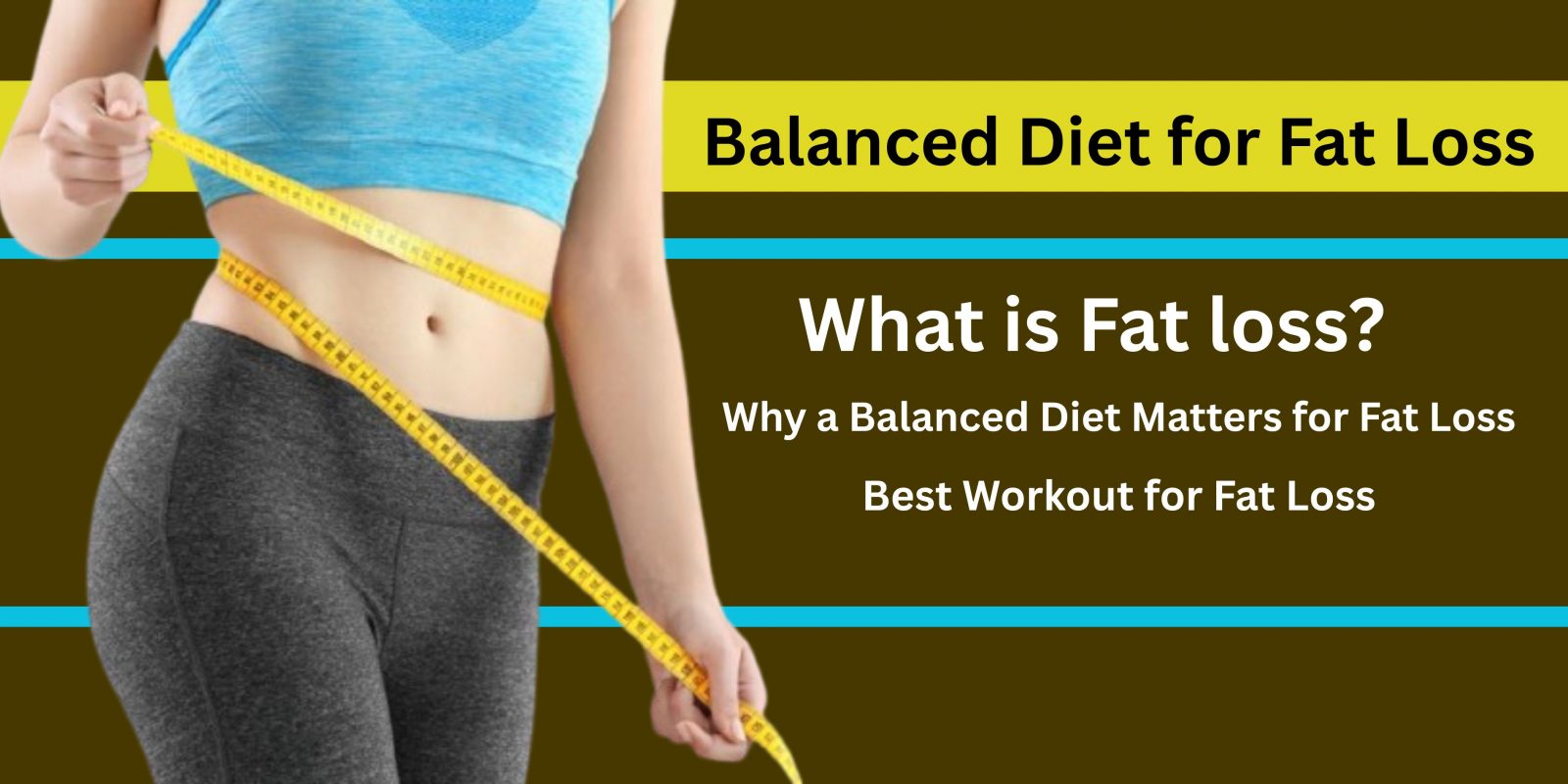
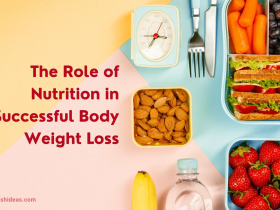






Leave a Reply